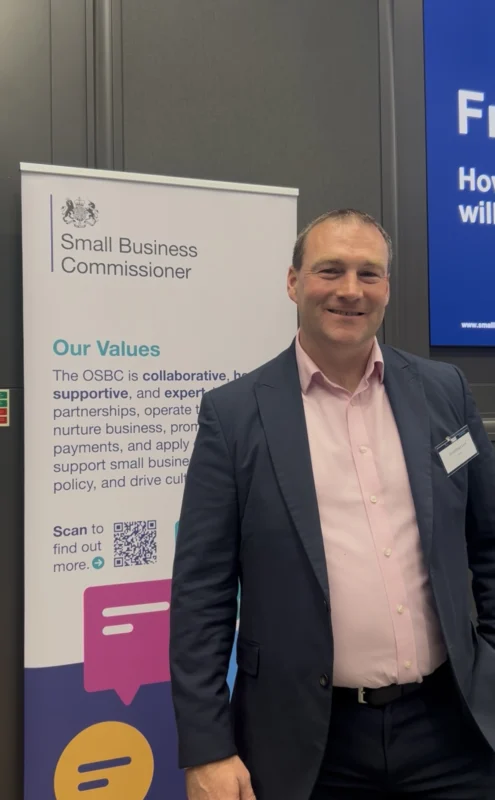Jonathan Lee
Aviva’s Journey to becoming a Fair Payment Code Gold Awardee
Paying suppliers on time has always been important to Aviva. We process over 450,000 invoices annually, totalling £2 billion. Making sure these are paid promptly is achieved through excellent staff and robust End to End processes with Procurement. But for us the Fair Payment Code is a lot more than a public recognition of the work we have done in this area.
SMEs are the lifeblood of the UK economy. Late payments can severely impact their cash flow and growth. As a large organisation, we felt a responsibility to lead by example and view a key part of our Corporate Responsibility is to pay our suppliers in line with agreed contractual terms.
We have woven regular checks and balances into our processes. This has included fair payment KPIs being embedded into supplier scorecards, and monthly reporting to ensure no surprises arise and if so, swift action can be taken. We view this not just as compliance, but as a values-driven initiative.
Better payment practices are not one and done, continuous investment in our processes and people continue. We’ve invested in systems like SAP Ariba and e-Invoicing to streamline processes. We’ve built a Centre of Excellence in Accounts Payable to ensure consistency and best practice alongside training colleagues across Aviva to understand their role in the Purchase-to-Pay (P2P) process.
The Journey to Fair Payment Code Gold Status
Aviva has always tracked payment performance and were a signatory to the previous Prompt Payment Code. We were pleased to find the application process for the Fair Payment Code (FPC) clear and straightforward, with really helpful support from the Fair Payment team.
When you apply to the FPC we recommend understanding where you currently stand on your payments. At Aviva we knew our Payment Performance Reporting already showed we paid over 95% of invoices on time, we had ensured our Procurement team where using standard contract templates with clear payment terms and we proactively contacted some suppliers – both large and small – to act as references, ensuring they were ready to respond to the Fair Payment team.
Once we submitted our application we received confirmation of our Gold Award status within two weeks.
Practical Advice for Other Firms Looking to Achieve Gold:
- Know your data: Start with your payment performance metrics. Monthly reporting helps avoid surprises.
- Engage your suppliers: Build trust and transparency. Their feedback is crucial.
- Standardise your contracts: Clear payment terms reduce ambiguity.
- Invest in technology: Automation helps reduce delays and manual errors.
- Create accountability: Make fair payment a strategic priority, not just an operational one.
- Be proactive: Reach out to the Fair Payment team—they’re supportive and collaborative.
Challenges to Anticipate:
- Mergers & acquisitions: Integrating new teams and systems can be complex.
- System integrations: Ensure governance is in place to monitor automated processes.
- Regulatory changes: Stay informed—new reporting requirements may require additional data collection.
- Supplier system issues: Be ready to support suppliers when their systems impact invoice processing.

For Aviva achieving Gold status is more than a badge—it’s a commitment to doing the right thing. Fair payment strengthens supplier relationships, supports economic resilience, and reflects our values.
I encourage every business to consider how they can embed fair payment practices into their operations and apply for a Fair Payment Code Award.
Share this article
